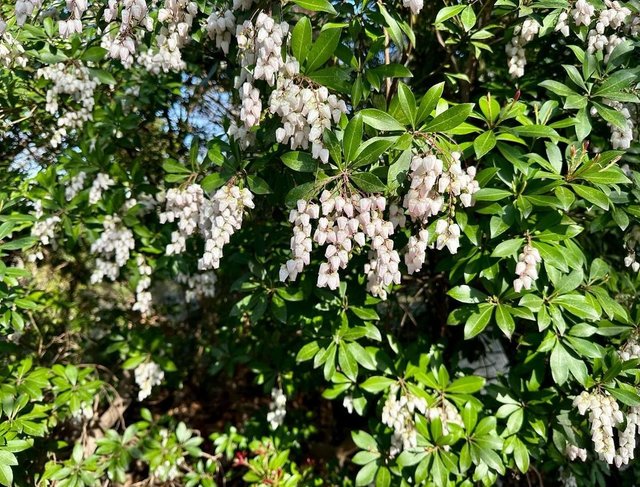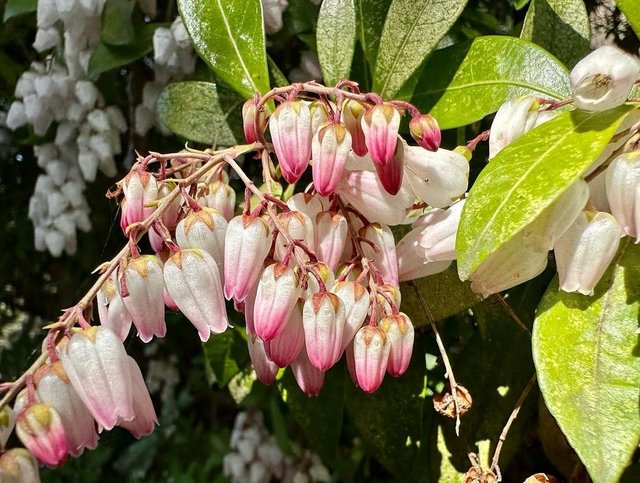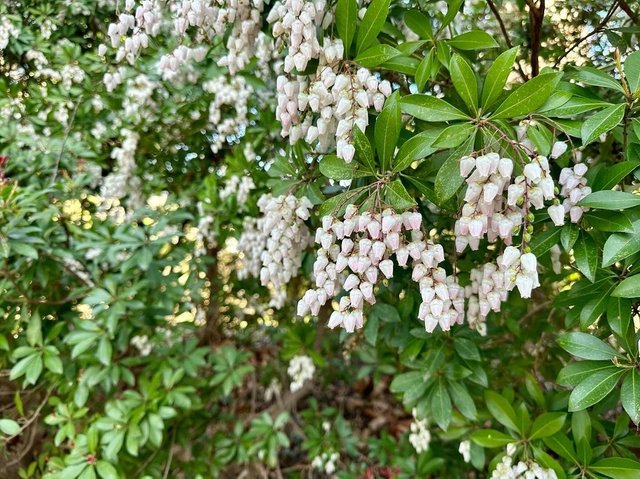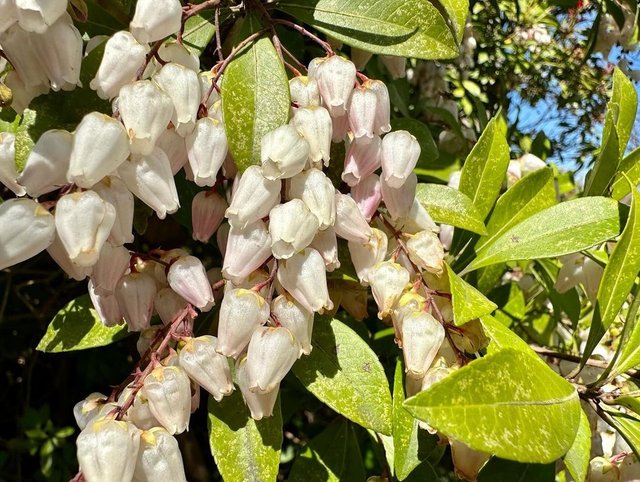Japanese Andromeda Flower




In the realm of flora, few plants evoke the same sense of delicate beauty and resilience as the Japanese Andromeda.Originating from East Asia, particularly Japan, Taiwan, and eastern China, this evergreen shrub has captivated gardeners and nature enthusiasts around the world with its graceful form and stunning blossoms.It typically grows to a height of three to nine feet, boasting glossy, leathery leaves that are lance-shaped and arranged alternately along the stems. What truly sets this plant apart, however, are its pendulous clusters of bell-shaped flowers.
The flowers of the Japanese Andromeda are a sight to behold. Appearing in late winter to early spring, these blooms hang in dense, drooping clusters, resembling delicate bells swaying in the breeze. The color palette varies, ranging from pristine white to soft shades of pink, creating a serene and ethereal ambiance in any garden setting.In Japanese culture, the Japanese Andromeda holds symbolic significance. It is often associated with elegance, grace, and endurance, reflecting the plant's ability to thrive in adverse conditions. Additionally, it is sometimes referred to as 'Pieris,' derived from the Greek mythological figure Pierides, the nine daughters of Pierus, who were transformed into magpies after challenging the Muses to a singing contest and subsequently lost.
Despite its delicate appearance, the Japanese Andromeda is remarkably hardy and adaptable. It thrives in well-drained, acidic soil with partial shade to full sun exposure. While it prefers moist conditions, it can tolerate brief periods of drought once established. Pruning is recommended after flowering to maintain its shape and encourage new growth.Thanks to its compact size and attractive foliage, the Japanese Andromeda is a popular choice for landscaping projects. It can be used as a specimen plant, accentuating borders, or incorporated into mixed shrubbery borders. Its early bloom time also makes it a valuable addition to winter gardens, providing much-needed color and interest during the colder months.
To ensure the health and vitality of your Japanese Andromeda, regular maintenance is essential. This includes watering during dry spells, mulching to retain moisture and suppress weeds, and fertilizing in spring with a balanced, slow-release fertilizer. Additionally, monitoring for pests and diseases such as lace bugs and powdery mildew is crucial for preventing damage and maintaining plant vigor.
